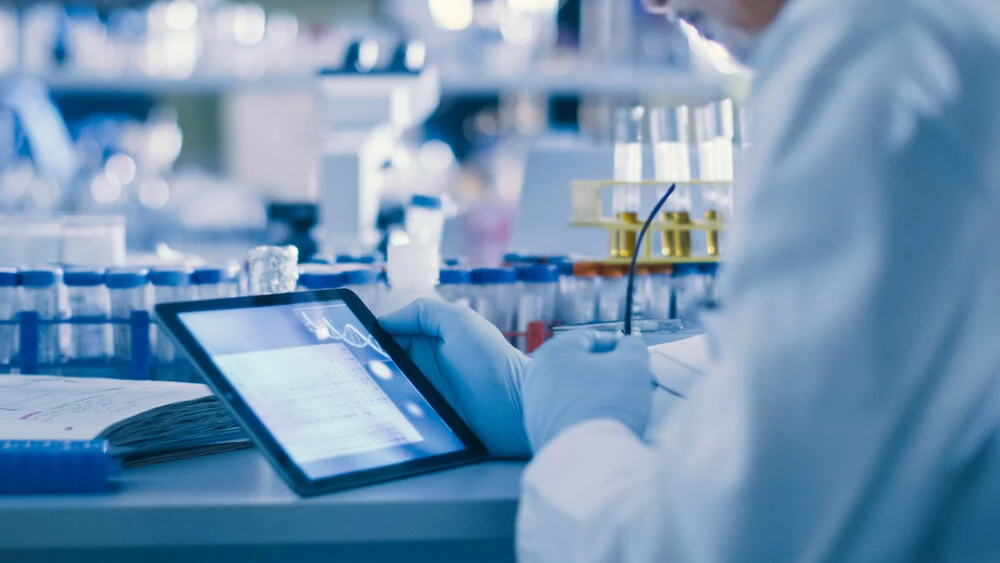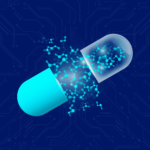Bioinformatics is an exciting and rapidly growing field. As biological data continues to grow exponentially, the need for specialists who can analyze and interpret this data becomes more critical. To thrive in this dynamic field, there are several skills required to be a bioinformatic specialist. In this article, we’ll explore these skills in detail, helping you understand what it takes to succeed in bioinformatics.
What is Bioinformatics?
Before diving into the skills required to be a bioinformatic specialist, let’s briefly understand what bioinformatics entails. Bioinformatics combines biology, computer science, and information technology to analyze and interpret biological data. This field is essential in various applications, such as genomics, proteomics, drug discovery, and personalized medicine.
For students looking to dive into the world of bioinformatics, starting with practical experience is key. There are numerous bioinformatics projects for the students that can help build essential skills. These projects could include analyzing genomic data to identify genetic markers, creating databases for biological information, or developing algorithms for protein structure prediction.
Technical Skills
1. Programming Languages
One of the core skills required to be a bioinformatic specialist is proficiency in programming languages. Common languages used in bioinformatics include:
- Python: Known for its simplicity and readability, Python is widely used in bioinformatics for data manipulation, statistical analysis, and visualization.
- R: R is another essential language, particularly for statistical analysis and creating complex plots.
- Perl: Though less popular now, Perl is still used in many legacy bioinformatics scripts and pipelines.
- Java and C++: These languages are useful for developing more complex bioinformatics software and tools.
2. Data Analysis and Statistical Skills
Data analysis is at the heart of bioinformatics. Understanding statistical methods and having strong analytical skills are crucial. This includes:
- Descriptive Statistics: Mean, median, mode, standard deviation, and variance.
- Inferential Statistics: Hypothesis testing, confidence intervals, and regression analysis.
- Machine Learning: Understanding algorithms like clustering, classification, and regression is increasingly important.
3. Database Management
Managing and querying large biological databases is another critical skill required to be a bioinformatic specialist. Familiarity with:
- SQL: For querying relational databases.
- NoSQL Databases: Such as MongoDB for handling unstructured data.
- Data Warehousing: Understanding how to store and retrieve large datasets efficiently.
4. Bioinformatics Tools and Software
Knowing how to use specific bioinformatics tools and software is essential. Common tools include:
- BLAST: For comparing gene and protein sequences.
- ClustalW: For multiple sequence alignment.
- Bioconductor: An R package for bioinformatics analysis.
- Galaxy: A platform for reproducible bioinformatics research.
Biological Knowledge
1. Genetics and Genomics
A solid understanding of genetics and genomics is one of the primary skills required to be a bioinformatic specialist. This includes:
- DNA/RNA Sequencing: Understanding the principles and techniques of sequencing technologies.
- Gene Expression: Knowing how genes are regulated and expressed in different conditions.
- Genomic Variations: Identifying and interpreting variations like SNPs (single nucleotide polymorphisms) and CNVs (copy number variations).
2. Molecular Biology
Familiarity with molecular biology concepts is crucial. This includes:
- Protein Structure and Function: Understanding how proteins are structured and their functions within the cell.
- Enzymes and Metabolic Pathways: Knowing how enzymes catalyze reactions and the pathways they are involved in.
3. Systems Biology
Systems biology involves studying complex interactions within biological systems. Skills in this area include:
- Network Analysis: Understanding how different biological components interact.
- Pathway Analysis: Identifying and interpreting metabolic and signaling pathways.

Computational Skills
1. Algorithm Development
Developing and optimizing algorithms for analyzing biological data is a key skill. This involves:
- Dynamic Programming: Essential for sequence alignment algorithms.
- Graph Theory: Useful for network and pathway analysis.
- Optimization Techniques: For improving the efficiency of bioinformatics algorithms.
2. High-Performance Computing
Given the vast amount of data in bioinformatics, high-performance computing skills are essential. This includes:
- Parallel Computing: Using multiple processors to perform calculations simultaneously.
- Cloud Computing: Leveraging cloud platforms like AWS, Google Cloud, or Azure for scalable bioinformatics analysis.
Soft Skills
1. Communication Skills
Effective communication is one of the softer skills required to be a bioinformatic specialist. You must be able to:
- Present Data: Clearly and concisely present findings to both technical and non-technical audiences.
- Write Reports: Document analyses and results in a comprehensible manner.
2. Problem-Solving Skills
Bioinformatics often involves tackling complex biological problems. Strong problem-solving skills are crucial for:
- Identifying Issues: Recognizing and defining problems within data.
- Developing Solutions: Creating effective strategies to address these issues.
3. Collaboration
Bioinformatics is a highly collaborative field. You will often work with biologists, computer scientists, and other specialists. Collaboration skills include:
- Teamwork: Working effectively within a multidisciplinary team.
- Project Management: Coordinating and managing bioinformatics projects.
Staying Updated
Bioinformatics is a rapidly evolving field. One of the ongoing skills required to be a bioinformatic specialist is the ability to stay updated with the latest developments. This can be achieved by:
- Continuous Learning: Taking online courses, attending workshops, and participating in conferences.
- Reading Research Papers: Keeping up with the latest research in bioinformatics journals.
- Networking: Connecting with other professionals in the field through social media, forums, and professional organizations.
Real-World Applications
1. Genomics and Personalized Medicine
One of the most exciting applications of bioinformatics is in genomics and personalized medicine. Skills required to be a bioinformatic specialist in this area include:
- Whole Genome Sequencing: Analyzing entire genomes to identify genetic variations.
- Pharmacogenomics: Understanding how genetic variations affect drug responses.
2. Drug Discovery
Bioinformatics plays a crucial role in drug discovery. Essential skills in this area include:
- Molecular Docking: Simulating how drugs interact with their targets.
- Virtual Screening: Using computational methods to identify potential drug candidates.
3. Proteomics
Proteomics involves the large-scale study of proteins. Skills required to be a bioinformatic specialist in this field include:
- Mass Spectrometry Data Analysis: Interpreting data from mass spectrometry experiments.
- Protein-Protein Interaction Networks: Analyzing how proteins interact within the cell.
4. Agricultural Bioinformatics
Bioinformatics is also used in agriculture to improve crop yields and resistance to diseases. Key skills include:
- Genomic Selection: Identifying beneficial genetic traits for breeding programs.
- Crop Genomics: Analyzing the genomes of various crops to improve their characteristics.

Career Path and Opportunities
1. Education and Training
To develop the skills required to be a bioinformatic specialist, formal education is often necessary. This typically includes:
- Bachelor’s Degree: In bioinformatics, computer science, biology, or a related field.
- Master’s Degree: Specialized programs in bioinformatics are highly beneficial.
- Ph.D.: For those interested in research or academic careers.
2. Job Opportunities
There are numerous job opportunities for bioinformatic specialists in various sectors, including:
- Academia: Research positions in universities and research institutions.
- Healthcare: Roles in hospitals and medical research centers.
- Pharmaceuticals: Positions in drug development and biotechnology companies.
- Agriculture: Jobs in agricultural research and development.
3. Certifications and Online Courses
In addition to formal education, certifications and online courses can help develop the skills required to be a bioinformatic specialist. Some popular options include:
- Coursera: Offers courses from top universities in bioinformatics and related fields.
- edX: Provides online programs and certifications in bioinformatics.
- LinkedIn Learning: Offers courses on various bioinformatics tools and techniques.
Conclusion
The skills required to be a bioinformatic specialist are diverse and multifaceted, encompassing technical, biological, and soft skills. As the bioinformatic field and salaries continue to evolve, staying updated with the latest developments and continuously learning is essential. Whether you’re analyzing genomic data, developing new algorithms, or collaborating with other scientists, these skills will help you succeed in this exciting and dynamic field.
Bioinformatics is more than just a profession; it’s a gateway to understanding the complexity of life itself. With the right skills and a passion for discovery, you can contribute to groundbreaking research and innovations that will shape the future of healthcare, agriculture, and beyond.



